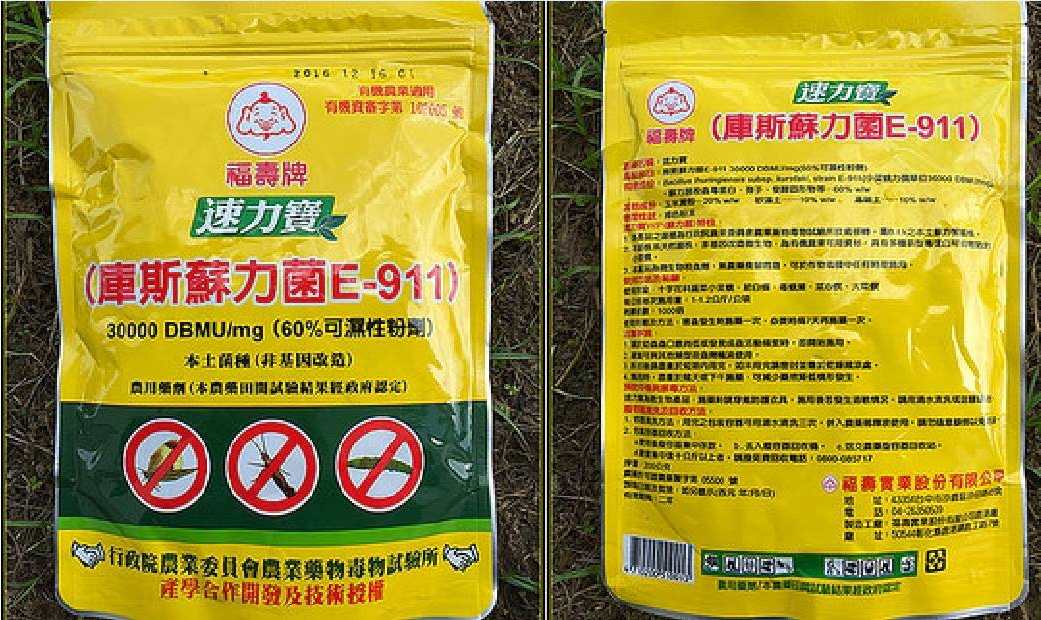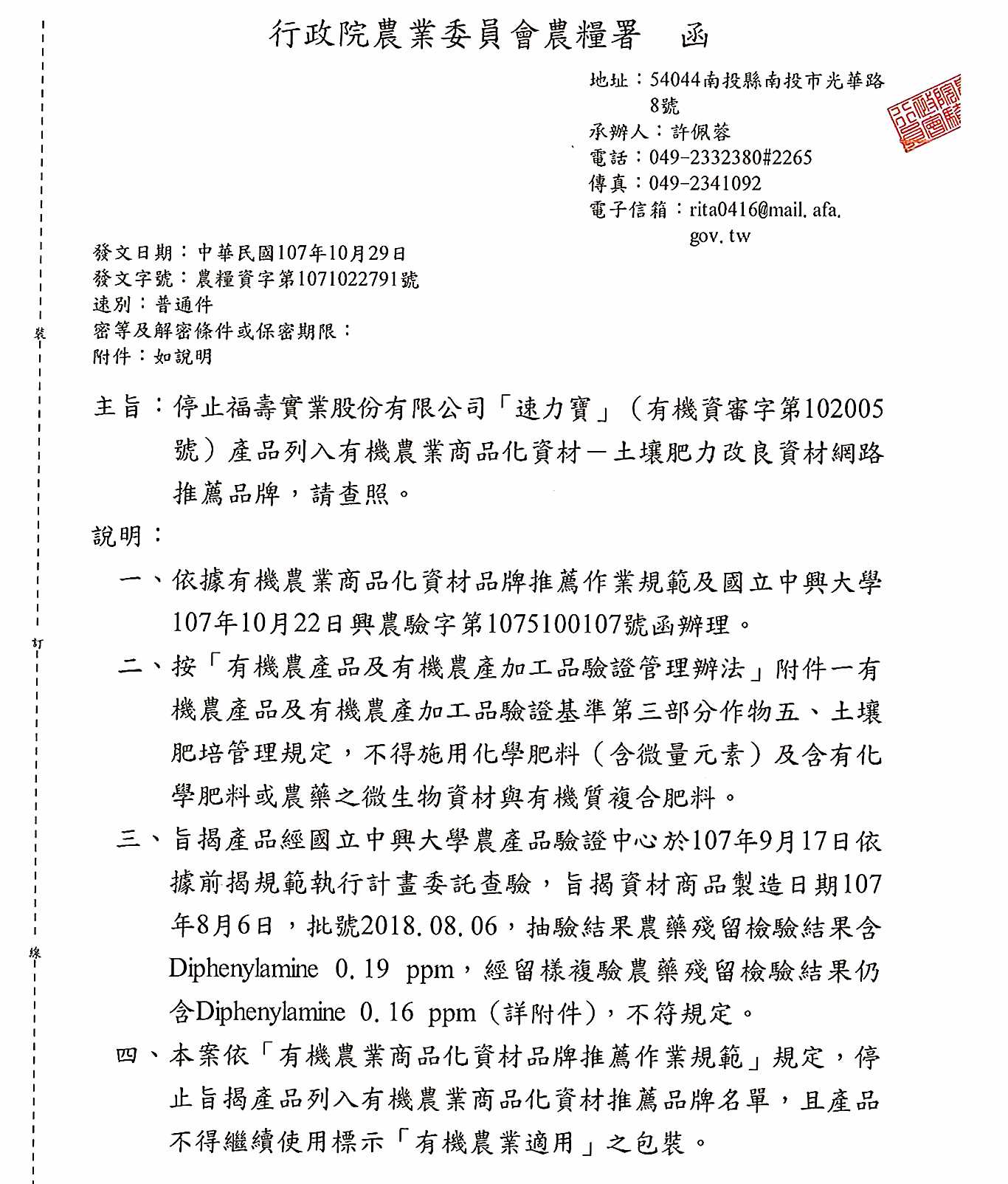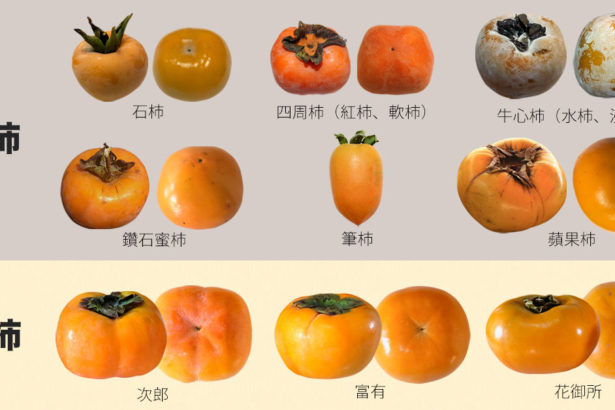The only local organic material, "Fushou Suilibao", detected the chemical pesticide diphenylamine, and the reason remains to be investigated.
Share23 + 1 Tweet EmailShares 23
The Agriculture and Food Department conducted a routine commodity inspection of organic agricultural materials. The products of Fushou "Suilibao" (manufacturing date, August 6, 107, batch number 2018.08.06) were found to contain chemical pesticide "diphenylamine". On the 5th of this month, the Agriculture and Food Department removed the product from the recommended list of organic materials to remind organic farmers not to use it.
Diphenylamine is a kind of entomopathogenic bacteria, which is safe and non-toxic to human body. Diphenylamine (DPA) is a chemical pesticide, which is also used for preservation, antisepsis and antioxidation. For example, the waxing ingredient used in apple peel, because diphenylamine can decompose into carcinogen nitrosamine, is considered to have a certain risk.
Vivien Qi, director of the Institute of Medicine and Drug Administration, said that the material used by Suri is for insect repellent and pest control, and there is no reason for operators to add diphenylamine, and no domestic manufacturer has registered the use of diphenylamine, so why does it appear in this product? It needs to be clarified. A spokesman surnamed Wang of Fushou Industry said that the company has tested every batch of raw materials of the product and will find out the cause of the pollution as soon as possible.


Fushou "Suilibao" has been found to contain chemical pesticides and stops being included in the recommended list of organic materials brands. (photo courtesy of / Agriculture and Food Department)
Fushou: Suilibao is composed of bacteria, corn starch, diatomite, etc., without the use of diphenylamine
In this regard, a spokesman for Fushou Industrial Co., Ltd. surnamed Wang said that "Kussuri Emuri 911" was transferred (non-exclusive) to Fushou by the Agricultural Drug Toxicology Laboratory (referred to as "Drug Research Institute") in 1996. Fushou's "Suilibao" products have been on the market for nearly a decade, and it is the first native biological insecticide of Thali in China, which is widely used and is commonly used by organic farmers.
For this product was found to contain chemical pesticides, he explained that in the past pesticide testing only 311 items, now increased to 374 items, will be found mixed with diphenylamine. As for which ingredient contains diphenylamine? He said that under investigation, the company has tested every batch of raw materials of the product and will find out the cause of the pollution as soon as possible.
Wang said, "the ingredients of 'Suilibao' are bacteria, corn starch, diatomite, kaolin, etc. The composition of the products has been the same from the past to the present, and diphenylamine will not be used in the production and fermentation process." he stressed that the company's manufacturing process is strict, and it is very strict to guard against pollution problems caused by the sharing of factory production lines.
Wang pointed out that dealers have been informed to remove the product from the shelves first, and the subsequent treatment may be full recycling or change the packaging: the words "available materials for organic agriculture" will no longer be marked; at the same time, the source of chemicals will be confirmed as soon as possible and the raw material formulations of the next batch of products will be readjusted as soon as possible.
Little knowledge: the Ministry of Health and Welfare announced in August last year that the pesticide testing items of the pesticide testing method "methods for determination of Pesticide residues in Food-methods for multiple residue Analysis (5)" increased from the original 311 to 374, and officially came into effect on January 1 this year. Among them, Diphenylamine (diphenylamine) is in the new test item.
Drug Institute: diphenylamine is used for preservation and antiseptic. why does it appear in thurium products? Need to investigate
Vivien Qi, director of the Drug and Drug Institute, said that diphenylamine (DPA) is a pesticide that can also be used to keep it fresh, preservative and antioxidant, such as in waxing ingredients on apple peels, while the international community has pointed out that diphenylamine has certain risks because it can decompose into carcinogen nitrosamines. However, she points out that Suri materials are used for insect repellent and insect control, and there is no reason for operators to add dianiline. "besides, there is no domestic manufacturer to register the use of diphenylamine, how on earth did dianiline come from?. Where did you come from? It still takes time to figure it out. "
At present, diphenylamine is not used as a pesticide in China, but in the pesticide detection standards of imported agricultural products, the residues of diphenylamine are pear 5ppm, apple 10ppm and apple juice 0.05ppm.
Diphenylamine is not used as a pesticide in China. Is there any doubt about the use of "Silibao" products containing diphenylamine? Vivien Qi explained that the Food and Drug Administration has started sampling operations for commercially available products (both imported and domestic), including adjuvants used in Fushou products, in order to clarify the reasons why the current products contain chemicals. It is also necessary to confirm whether the strain has the biological characteristics of automatically producing diphenylamine, and the test results are expected next Monday.
Vivien Qi says that all pesticides need to get a pesticide registration certificate before they are put on the market, and their raw materials need to be inspected and approved by the government, and all ingredients and formulations must be disclosed to the drug institute. "We will sign confidentiality agreements on goods involving knownow and cannot leak them, but the key point is to check the merchandise in the first place and make sure that there is nothing wrong with the ingredients." In addition, she also pointed out that the management standards of the back-end agricultural products should be separated from the front-end use of pharmaceuticals, and it is not very appropriate to use the trace standards of agricultural products to examine the front-end drug use, and two-way communication is needed in management.
Farmers: Suilibao is trusted by farmers and is the only local organic thuriac product in China.
In response to the incident of organic materials being contaminated by chemical pesticides, farmer Chen Fengyi responded that Taiwan's testing standards for organic farmers are extremely high, and all chemical pesticides are not allowed to be detected, which often makes farmers panic and only dare to use organic materials recommended by the government. While Fushou "Suilibao" was originally the only local Suri product that passed the organic qualification, so it was trusted by farmers and was mainly used in cruciferous leafy vegetables and melons and vegetables. Now the news of the accident has spread that organic farmers may lack the trust of Suri bacteria available.
Chen Fengyi also used "Suilibao" in his vegetable garden. He said that although the product must be diluted 1000 times before it can be used, and the diphenylamine contained in it may be difficult to detect, once it is detected, even a fine of 30, 000 yuan will be imposed, and the product will not be listed on the market, which will deal a blow to the brand image. "this is the most harmful to farmers and will leave us at a loss as to what to do, because something will happen if we have selected organic materials recommended by the government. Who wants to absorb such a loss? " Call on the government and operators to find out the cause of pollution as soon as possible, so that organic agricultural products will not be innocently affected.
Diphenylamine, an apple antistaling agent, has the risk of carcinogenicity. The residue in EU regulations is 100 times stricter than that in Taiwan.
Share23 + 1 Tweet EmailShares 23
- Prev

Super strong persimmon picture guide! Niu Xin, around, diamond, apple, stone persimmon, pen persimmon, rich, Jiro, Hua Yu Suo nine varieties!
Super strong persimmon picture guide! Niu Xin, around, diamond, apple, stone persimmon, pen persimmon, rich, Jiro, Hua Yu Suo nine varieties!
- Next

2018 Taoyuan Hakka traditional Music Festival-Hakka eight-tone noise
Zheng Wencan, mayor of Taoyuan, went to the second Terminal of Taoyuan International Airport yesterday (7) afternoon to attend the "2018 Hakka traditional Music Festival-Hakka eight sounds". Mayor Zheng Wencan said that Taoyuan is the first Hakka village, and Hakka culture is peach.
Related
- A course of planting techniques and methods on how to grow carrots
- How to plant the latest tulips?
- Is it better to pick tea in the morning or in the afternoon? When is the best time for tea to be picked? what is the third or fifth tea?
- Launch Yuanxiao Happy combination Haocha + Tea Yuan healthy Taste
- Penghu Tourism "Fireworks 20 Parade with You"
- 2022 West Lake Happiness holds "Digital Revitalization Voucher" and draws iphone13 and laptop.
- Banqiao Fuzhou social houses are designed to change start-up combined with police elimination to create a safe and livable environment
- The convenient measure of "mechanical weeding" in Xinbei has been abused and the Agriculture Bureau has imposed heavy penalties on the illegal land consolidation.
- Changgeng University Joins Hands with Four Memory Factories to Rescue Memory Talent Shortage
- The list of Taiwan's top 100 MVP managers is listed by the Director-General of the Farmers' Association of Sanxia District.

